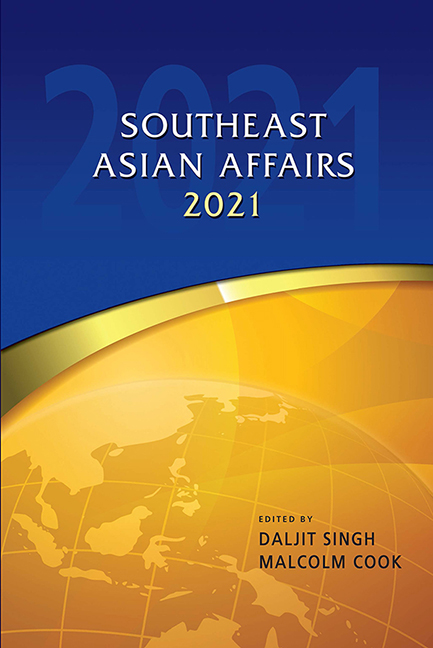Vietnam in 2020: The Year in Transition
Published online by Cambridge University Press: 09 October 2021
Summary
On 30 December 2019, speaking at the virtual year-end national conference between the central and local governments, the secretary-general of the Communist Party of Vietnam (CPV) and president of Vietnam, Nguyen Phu Trong, set the scene for the country in 2020:
It is the final year of the current tenure [of the 12th Party Congress], which will have a decisive significance for the successful completion of the tasks set out in the 12th Party Congress Resolution. It is also the year that will see: congresses of party committees at all local levels to be held in the lead-up to the 13th National Party Congress, the celebration of the 90th anniversary of the founding of the CPV and the Vietnam Fatherland Front, 75 years of Vietnam's national independence, the 130th birthday of President Ho Chi Minh, Vietnam taking the rotational ASEAN chairmanship and the non-permanent membership in the United Nations Security Council for the 2020–2021 term, and many other political events of paramount significance.
Unforeseen in Trong's vision were the ramifications of the coronavirus pandemic, known as COVID-19. Though COVID-19 had significant adverse impacts on both domestic politics and foreign relations during the year, Vietnam's effective response to the pandemic not only earned credit for the Vietnamese government overseas but also intensified the CPV's legitimacy at home. At the same government function on 28 December 2020, almost one year later, Trong was able to define 2020 as “more successful than 2019 and the most successful year in the past five years”. Trong singled out achievements on the following five fronts:
First, the prompt, timely, flexible and effective responses to COVID-19 and national disasters. Second, making all efforts to maintain and recover the economy to achieve the possible highest growth rate. Third, continued progress in the cultural, social, healthcare, education and training and science and technology sectors. Fourth, crucial achievements in foreign relations and international integration, contributing to the elevation of the country's credibility and position in the international arena. National defence and security continued to be intensified; national sovereignty, peaceful environment and stability were preserved, creating favourable conditions for national development.
- Type
- Chapter
- Information
- Southeast Asian Affairs 2021 , pp. 381 - 404Publisher: ISEAS–Yusof Ishak InstitutePrint publication year: 2021

